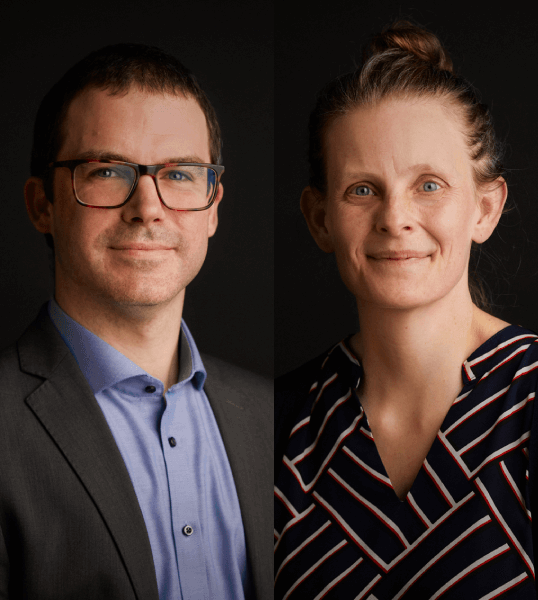Sapere Aude grants for BMI researchers
Two researchers from Department of Biomedical Sciences receive Sapere Aude research leader grants. They each receive DKK 6 million for their innovative projects.
 Out of the 42 new Sapere Aude grants provided by the Independent Research Fund Denmark, two go to researchers at the Department of Biomedical Sciences. They are: Signe Mathiasen and Ronan Berg. The Sapere Aude grant pool supports talented research leaders, giving them a chance to head their own research team. They each receive just over DKK 6 million each. Read more about the projects below.
Out of the 42 new Sapere Aude grants provided by the Independent Research Fund Denmark, two go to researchers at the Department of Biomedical Sciences. They are: Signe Mathiasen and Ronan Berg. The Sapere Aude grant pool supports talented research leaders, giving them a chance to head their own research team. They each receive just over DKK 6 million each. Read more about the projects below.
Signe Mathiasen, Department of Biomedical Sciences
Title: “Signaling properties of ADGRL3, an adhesion GPCR putatively activated by mechanical transsynaptic forces”. Grant: DKK 6,191,040.
Nerve cells are the most important cells in our nervous system. Nerve cells – neurons – send signals from one cell to the next via the specialised branching connecting neighbouring cells. The gap between two nerve ends, the synapse, is so narrow that proteins are able to bridge it, thus stabilising the synapse. New genetic research shows that one of these “bridge builders”, the ADGRL3 protein, is implicated in ADHD and other neuropsychiatric disorders such as schizophrenia, but scientists still do not know how this protein is activated and affects the neurons’ signalling capacity. One hypothesis is that ADGRL3 is activated by mechanical stress, which propagates along its bridge-building bonds.
In this project, Signe Mathiasen will test this hypothesis by means of molecular sensors, which emit light when ADGRL3 is activated and initiates a signalling cascade inside the cell. Using highly specialised microscopes and optical forceps, which allow for mechanical impact on ADGRL3, the group will identify the connection between ADGRL3’s bridge-building capacities and its signalling abilities. This knowledge may contribute to the design of improved medical strategies against neuropsychiatric disorders.
Ronan Berg, Department of Biomedical Sciences
Title: “Pulmonary Immune Cell-Microbiome Interactions in ARDS”. Grant: DKK 6,190,680.
The COVID-19 pandemic has shown how differently our immune systems may respond to infection. A series of studies suggest that differences in the T cells’ response to infection in the lungs are significant in this context. Normally, the T cells play a key role in maintaining healthy lung tissue, and this includes controlling which and how many potentially harmful immune cells are allowed into the lungs.
New studies have shown that poor T cell function contributes to potentially lethal lung damage in connection with COVID-19. Using a series of brand new advanced techniques, Ronan Berg and his group will seek to determine whether similar mechanisms are associated with lung failure in the many patients who suffer from other severe infections aside from COVID-19. This will help to identify the function of the T cells and other immune cells in the lungs in healthy individuals as well as intensive care patients on life support. Seeing as a natural, highly diverse local bacteria flora is key to maturing and controlling the immune cells in the lungs, the project will focus on the interplay between T cells and bacteria.
The results of the study will help determine whether the mechanisms – or parts of them – recently identified in COVID-19 patients suffering from severe lung failure are unique to this condition or instead common mechanisms in lung failure. This will help us understand the disease mechanisms in depth and thus identify new biomarkers of disease and possibly also new targets for treatment.
